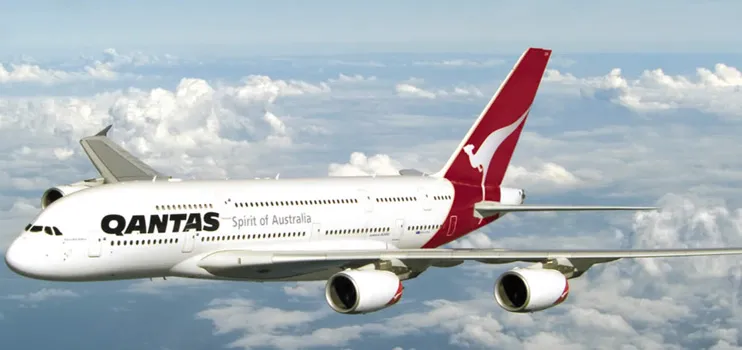
QANTAS to reduce carbon emissions through 10-year biofuel deal
Oct 12, 2017

Qantas has announced a significant 10-year agreement aimed at reducing carbon emissions through the use of sustainable aviation fuel (SAF). This partnership involves the procurement of biofuels derived from renewable sources, which are expected to substantially lower the airline’s carbon footprint. By integrating these biofuels into their operations, Qantas aims to enhance its commitment to environmental sustainability and align with global efforts to combat climate change. The initiative represents a crucial step in the aviation industry’s transition towards greener practices, supporting Qantas’s long-term goal of achieving net-zero emissions by 2050.
QANTAS’s Commitment to Sustainable Aviation
In a significant move towards sustainability, QANTAS has announced a groundbreaking 10-year deal aimed at reducing carbon emissions through the use of biofuels. This initiative is part of the airline's broader strategy to achieve net-zero emissions by 2050. The partnership with biofuel suppliers marks a pivotal step in transforming the aviation industry’s approach to environmental responsibility.
Understanding Biofuels and Their Impact
Biofuels are renewable energy sources derived from organic materials, such as plant matter and animal waste. They present a viable alternative to traditional fossil fuels and can significantly lower carbon emissions associated with air travel. By utilizing biofuels, QANTAS aims to reduce greenhouse gas emissions by up to 80% compared to conventional jet fuel.
Key Benefits of QANTAS’s Biofuel Deal
The 10-year biofuel agreement holds several advantages for both the airline and the environment. Here are some of the key benefits:
| Benefit | Description |
|---|---|
| Carbon Emission Reduction | Utilizing biofuels can lead to an 80% decrease in carbon emissions. |
| Renewable Resource | Biofuels are derived from sustainable sources, reducing reliance on fossil fuels. |
| Market Leadership | QANTAS sets a precedent in the aviation industry, encouraging others to follow suit. |
| Innovative Technology | Investment in biofuel technology drives innovation and development in aviation. |
| Enhancing Brand Image | Demonstrating commitment to sustainability enhances QANTAS’s reputation. |
QANTAS’s Sustainability Goals
QANTAS has set ambitious targets to address climate change and enhance sustainability within its operations. The airline's comprehensive strategy includes:
- Net-Zero by 2050: QANTAS is committed to achieving net-zero carbon emissions by 2050.
- Carbon Offsetting: Implementing carbon offset programs to mitigate emissions.
- Fleet Modernization: Investing in more fuel-efficient aircraft to reduce overall fuel consumption.
- Waste Reduction: Reducing waste in inflight operations and improving recycling efforts.
Investment in Biofuel Production
To support the transition to biofuels, QANTAS is also investing in the development of biofuel production facilities. These facilities will not only supply fuel for their aircraft but also contribute to the local economy by creating jobs and promoting sustainable agricultural practices.
The Future of Aviation and Sustainability
The aviation sector is under increasing pressure to reduce its environmental footprint. As one of the largest contributors to global carbon emissions, airlines must adopt innovative solutions to combat climate change. QANTAS's partnership in biofuels represents a significant stride towards a more sustainable future in air travel.
Moreover, other airlines are likely to follow QANTAS’s lead, paving the way for a wider adoption of sustainable aviation fuels across the industry. The success of this initiative could inspire collaborative efforts among airlines, governments, and fuel producers to further develop biofuel technology and infrastructure.
Customer Benefits of Sustainable Travel
As QANTAS embraces sustainable practices, customers can look forward to several benefits:
- Eco-Friendly Travel: Passengers can feel good knowing they are flying with an airline committed to reducing carbon emissions.
- Increased Options: As demand for sustainable travel rises, customers may see more flights utilizing biofuels.
- Corporate Responsibility: Businesses partnering with QANTAS can enhance their sustainability profiles by choosing eco-conscious travel options.
Conclusion: A Step Towards a Greener Future
QANTAS's 10-year biofuel deal is a landmark initiative that could transform the aviation industry and set a new standard for environmental responsibility. By prioritizing sustainable practices and investing in innovative solutions, QANTAS not only reduces its carbon footprint but also inspires a collective movement towards greener air travel.
As consumers become increasingly aware of their environmental impact, airlines that take proactive steps towards sustainability will likely enjoy greater loyalty and support. QANTAS’s commitment to biofuels exemplifies a forward-thinking approach that aligns with the values of modern travelers.
In conclusion, QANTAS is leading the charge in sustainable aviation, and its efforts are crucial in the fight against climate change. As the airline industry continues to evolve, the adoption of biofuels will play a vital role in achieving a more sustainable future for air travel.
Related Articles

Explore Thailand: The Best Islands to Visit for Paradise, Adventure, and Relaxation

The Ultimate Guide to the Best Islands in Thailand for Your Next Getaway

Do babies need passports? How to get a passport for a newborn

How to get a U.S. passport fast: here’s how to expedite the process

What is Mobile Passport Control: 5 reasons why you should use it

SENTRI vs. Global Entry: A detailed guide

Do you need a passport to go to the Bahamas? Let’s find out

Do you need a passport to go to Mexico? A detailed guide

Do you need a passport to go to Canada? We got the answer

Do You Need a Passport for a Cruise: An Essential Travel Guide

Booster Seat Requirements: All the Rules to Follow in Your Rental Car

What Are the World’s Most Powerful Passports, and How Does Yours Rank?

How to Take a Passport Photo at Home: A Helpful Guide

You've got to have heart! Southwest's new livery

Your opinion: Should water be free on low cost carriers?

Young women bolder than guys as solo travellers
